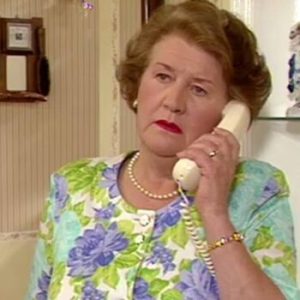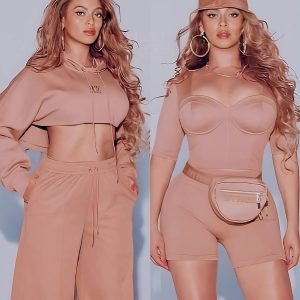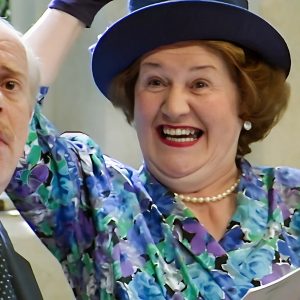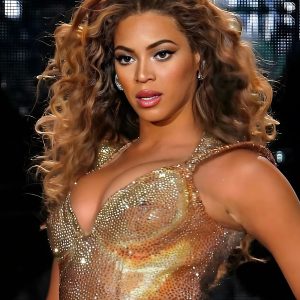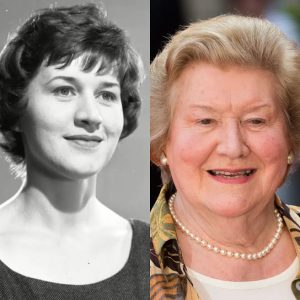“Keeping Up Appearances”: The Grand Dame of British Sitcoms Still Reigns Supreme
In the grand pantheon of British comedy, few titles carry the same combination of cultural sharpness and enduring charm as Keeping Up Appearances. Airing from 1990 to 1995, and penned by the ever-astute Roy Clarke, this iconic BBC sitcom isn’t just a nostalgic relic of the early ’90s—it remains a biting, brilliant mirror held up to the anxieties of the middle class, and a masterclass in character-driven comedy that continues to captivate audiences worldwide.
At the center of its theatrical chaos, one woman reigns with perfectly coifed hair, bone china teacups, and an iron-clad grip on social status: Hyacinth Bucket (pronounced “Bouquet,” of course).
The Unstoppable Hyacinth Bucket: A Character for the Ages
In the pantheon of sitcom matriarchs, Hyacinth Bucket is peerless. Played with exquisite precision and vocal gymnastics by Dame Patricia Routledge, Hyacinth is a suburban social climber obsessed with appearances, etiquette, and elegance—whether or not reality complies.
Hyacinth is not simply a character; she is a force of nature. Every episode is an orchestration of her relentless pursuit of class perfection, whether she’s hosting a candlelight supper (with Royal Doulton china, naturally), meddling in her neighbors’ affairs, or pretending her less “refined” relatives don’t exist. Her self-imposed fantasy of gentility clashes constantly—and hilariously—with the grubby mundanity of everyday British suburbia.
But behind the laughter lies something more profound. Hyacinth is also a symbol of aspiration and insecurity. Her desperate need to climb the social ladder reflects a timeless human yearning: the desire to be seen, to be respected, to rise above. In Routledge’s capable hands, Hyacinth becomes both comedic gold and tragic figure—farcical, yes, but also deeply human.
Richard Bucket: The Long-Suffering Gentleman
No grand comedic queen can shine without a beleaguered companion, and Hyacinth’s husband Richard—played with magnificent resignation by the late Clive Swift—is exactly that. As her chauffeur, reluctant partner in social schemes, and verbal punching bag, Richard epitomizes weary endurance.
Richard’s deadpan wit and flustered disbelief make him the perfect foil to Hyacinth’s unrelenting pomposity. His quiet exasperation, whispered protests, and occasional acts of rebellion create a deeply relatable character—a man trapped between love, duty, and the sheer madness of his wife’s grand illusions.
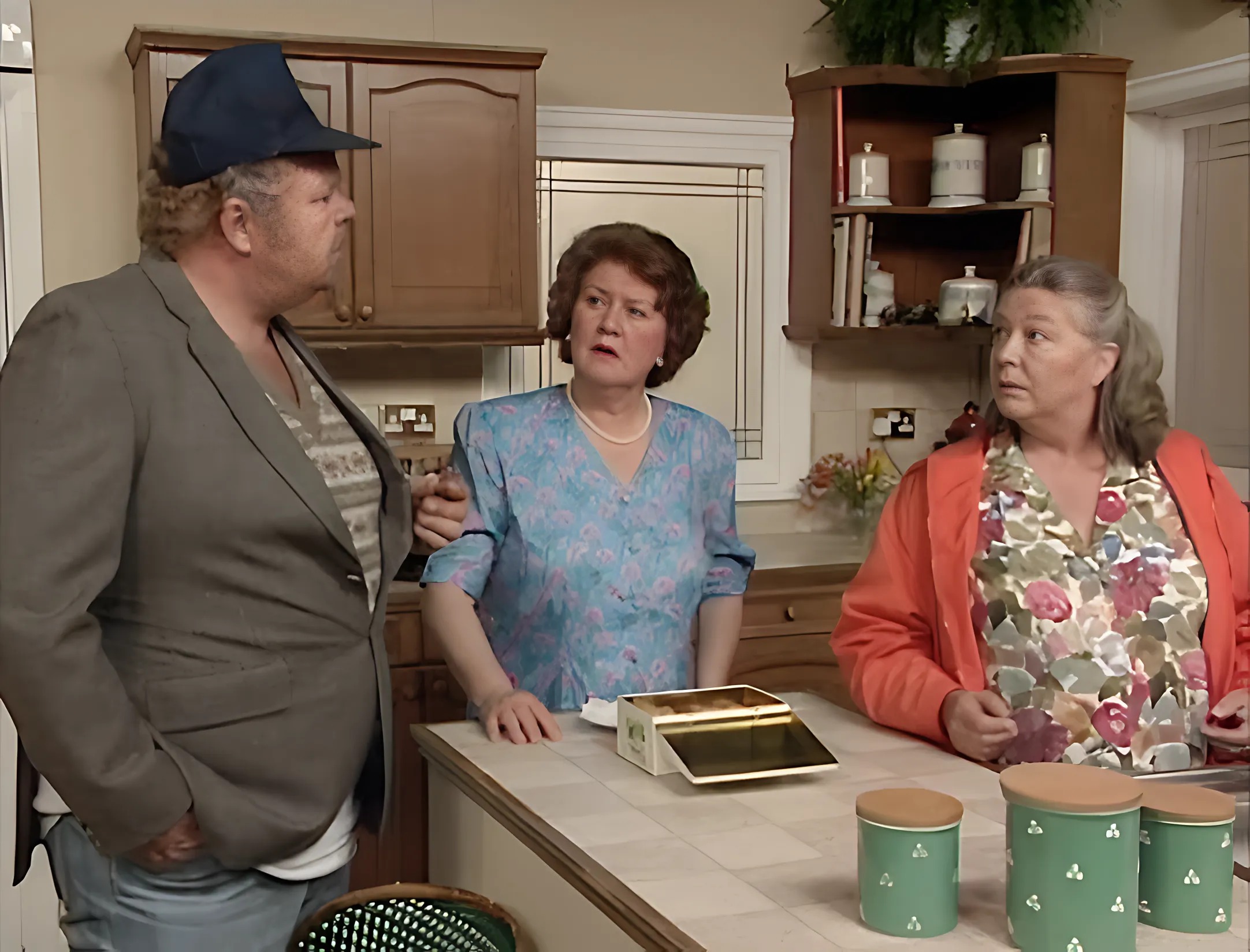
The chemistry between Swift and Routledge is nothing short of legendary, elevating even the simplest of plotlines into finely tuned comedic ballet. Whether Hyacinth is screaming about a misplaced doily or pushing Richard into yet another mortifying tea invitation, the result is always comic brilliance.
A Gallery of Eccentrics: Supporting Cast Perfection
While Hyacinth may be the gravitational center of Keeping Up Appearances, the show’s enduring charm lies in its ensemble of lovable oddballs and comic foils.
There’s Elizabeth, the ever-nervous next-door neighbor whose trembling hand inevitably spills tea whenever she visits Hyacinth’s home—a running gag that never loses its charm. Played by Josephine Tewson with fluttering anxiety and genuine warmth, Elizabeth represents the viewer’s perspective: perpetually bewildered, somewhat amused, and always one inch from escape.
Her brother Emmet (David Griffin), a mild-mannered musician, becomes an unwilling target of Hyacinth’s operatic “singing” and over-familiarity. His ever-escalating efforts to dodge Hyacinth’s social advances lend the series a delightful sense of cat-and-mouse farce.
And then there are Hyacinth’s working-class sisters: the sultry Rose (played variously by Shirley Stelfox and Mary Millar), and the slovenly but lovable Daisy (Judy Cornwell), whose dopey husband Onslow (Geoffrey Hughes) might just be the show’s secret comedic weapon. Onslow, with his beer belly, football vest, and booming one-liners, stands as the antithesis of everything Hyacinth holds dear—and yet, his unapologetic authenticity often makes him the most grounded character in the series.
Class, Culture, and the Satire Beneath the Laughter
What sets Keeping Up Appearances apart from the average sitcom is its incisive, layered satire. It’s not just about a woman obsessed with status—it’s a portrait of British class tension in the late 20th century.
Roy Clarke’s writing cuts deep into the societal mores of post-Thatcher Britain, skewering the way class mobility was idealized yet resisted. Hyacinth’s attempts to distance herself from her humble roots are exaggerated for laughs, but they also reflect real anxieties that transcended the show’s era—and still resonate today.
Whether Hyacinth is pretending her sister lives in a mansion instead of a council house, or attempting to join elite social clubs with no invitation, every plotline reflects a fundamental truth: we all want to be more than we are, and society has taught us that our value lies in perception.
The brilliance of Clarke’s writing is that it never becomes mean-spirited. The satire is affectionate. We laugh at Hyacinth, yes—but we also root for her, cringe for her, and maybe even see a little of ourselves in her.
Global Reach and Lasting Legacy
Though thoroughly British in its setting and sensibility, Keeping Up Appearances found a fervent international audience. From the United States to Australia, millions were charmed by Hyacinth’s antics and the show’s universal themes of family, embarrassment, and identity.
Its success on PBS in the U.S. turned it into a cult favorite across the Atlantic, where American viewers reveled in its distinctly British quirks and sharp observational humor. It remains a fixture in rerun schedules and digital streaming, gaining new fans even three decades after its final episode aired.
Catchphrases like “It’s Bouquet, not Bucket!” have entered the lexicon of TV history. The series even inspired a prequel (Young Hyacinth in 2016), and merchandise continues to sell worldwide, from box sets to “Candlelight Supper” mugs.
A Comedic Masterpiece That Endures
In a landscape of rapidly evolving television, Keeping Up Appearances endures not through nostalgia alone, but through the brilliance of its craft. With characters that feel alive, storylines rooted in relatable absurdity, and a keen eye for cultural critique, it remains a blueprint for character-driven comedy.
It’s a reminder that the funniest stories are often the simplest: a woman trying to throw the perfect party, a man trying not to spill tea, a family trying to love one another in spite of everything.
More than just a sitcom, Keeping Up Appearances is a timeless comedy of manners, identity, and the desperate, hilarious ways we try to be seen. And as long as there are appearances to keep up, Hyacinth Bucket will be there—brilliant, blustering, and utterly unforgettable.

